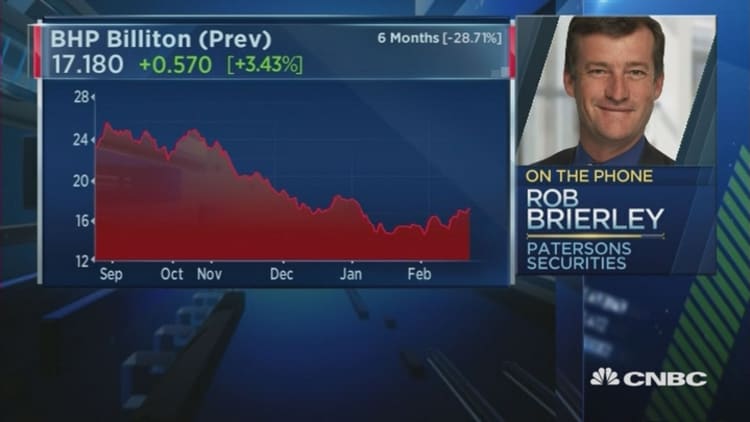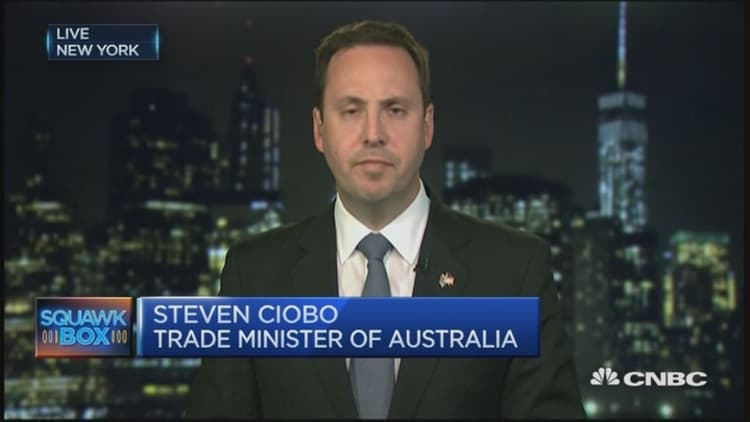


Top global miner BHP Billiton slashed its interim dividend by 75 percent, the first reduction since 1988, amid a rout in commodity markets that has sent prices of oil, iron ore, coal and other raw materials tumbling.
The world's biggest diversified miner reported a net loss of $5.67 billion for the first half of the 2016 financial year, its first loss in more than 16 years, and cut its interim dividend to 16 cents. Analysts had expected a dividend of 31 cents.
BHP ditched its progressive dividend policy, which held that it would pay a steady or higher dividend at each half-year result, to protect its solid 'A' credit rating, the highest in the decimated mining sector.
"Finally they've admitted that perhaps this slump in commodities is going last for a little bit longer than short-term," Robert Brierley, head of research at Patersons Securities in Perth, told CNBC's The Rundown.
BHP will also cut capital and exploration expenditure down to US$5 billion in FY17 from US$7 billion in FY16.
"Slower growth in China and the disruption of OPEC have resulted in lower prices than expected," BHP Chief Executive Andrew Mackenzie said in a statement.
"Our new dividend policy and transparent capital allocation framework are part of a broader strategy to help BHP Billiton manage volatility," he said.
Underlying attributable profit plunged to $412 million from $4.89 billion a year earlier, missing analysts' forecasts for around $585 million, as commodities prices plummeted to multi-year lows.
Standard & Poor's cut BHP's credit rating to 'A' from 'A+' this month and warned it might downgrade the rating further if the company failed to take more steps to preserve cash and review its dividend policy.
With cuts in operating expenditure, capex and dividend, BHP will be freeing up some $10-$12 billion of cash in the next two years, which will not only improve its debt and operating positions, but also potentially open up M&A opportunities, said metals and mining analyst at Shaw and Partners, Peter O'Connor.
With compound annual growth rate at 9 percent a year in the last 10 to 15 years that is now down to 4-5 percent, BHP will need M&A or other projects to top up that growth, O'Connor told CNBC's Squawk Box.
BHP cautioned that it expected a prolonged period of weaker prices and higher volatility and announced a simplified company operating model.
The miner also faces hefty costs from a dam disaster in Brazil at its Samarco joint venture with Vale <VALE5.SA>, which killed 17 people in that country's worst environmental disaster. It took an after tax charge of $858 million relating to the disaster.



